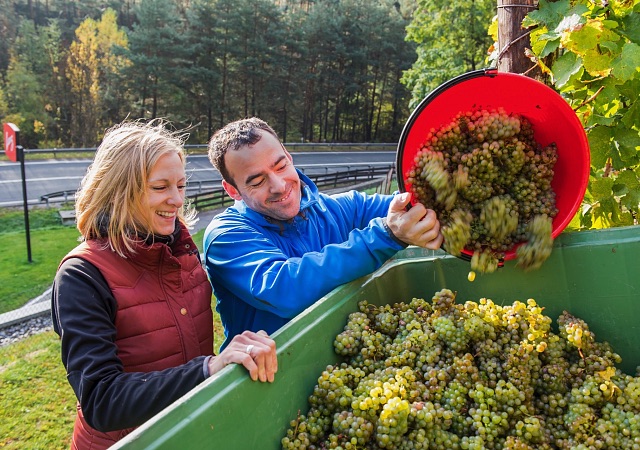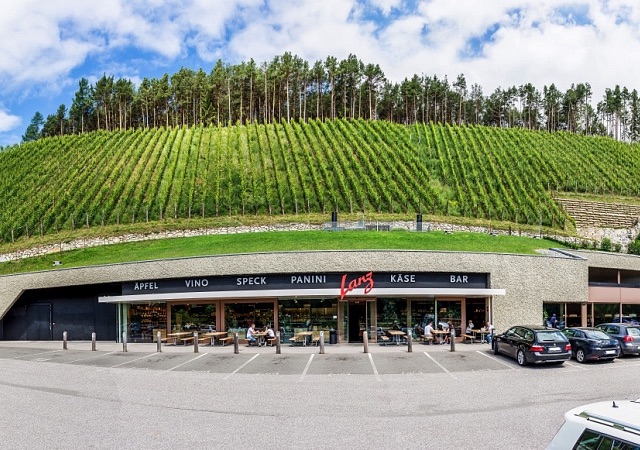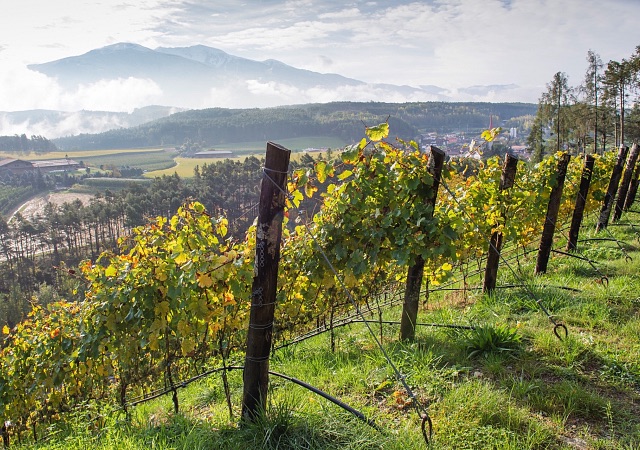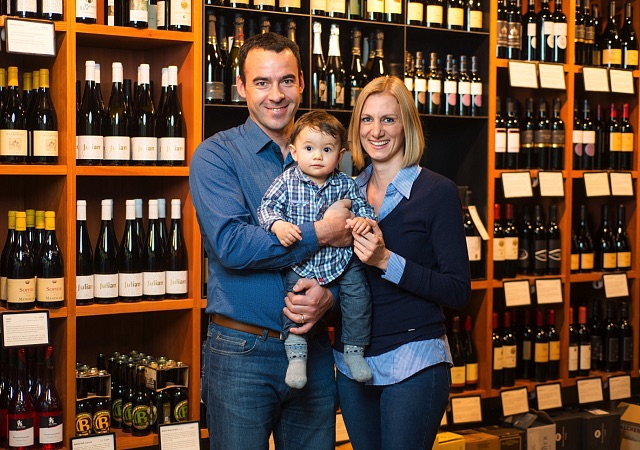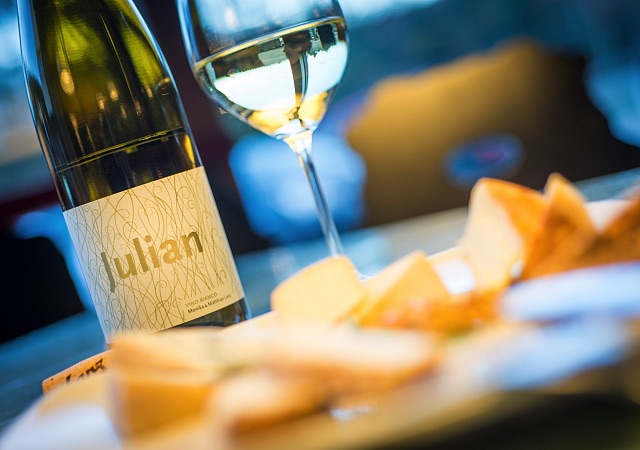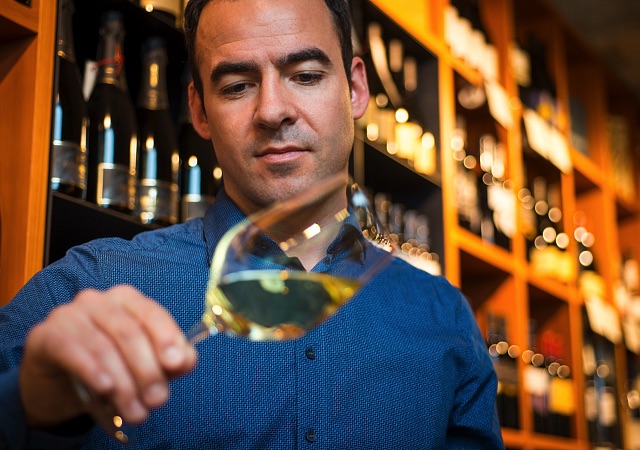A "northern" Riesling
In 2013 we laid out a steep vineyard above our deli service station in Schabs near Bressanone/Brixen. Our search for the right grape variety led us to choose Riesling. It is typical of this area in the Eisack Valley and ideally suited to the extremely steep site with its sandy soils and the alternation of hot days and cool nights that is so important for this wine.
70 % slope
When we took the decision to use the slope for wine growing, we realised that the vineyard would be one of the most northerly in the whole of Italy. And with a 70 % slope, it is so steep that much of the work in the vineyard has to be done by hand – no easy task for newcomers to wine growing like us! But it has worked: On 9,000 sq.m. of land we now have 7,300 heathy vines, which supply us with the grapes we need to make our Julian.
Made with love
We have been making our own Riesling since 2016: an elegant, fresh wine with delicate mineral notes. It has the colours, aromas and taste of our region – and a special name on the label: that of our son. Our Riesling Julian is a fine, light companion to a wide range of dishes. We hope you will feel the love and passion with which our wine is made.


Julian 2016
Grape variety:
Riesling
Site and soil:
The vineyard is located at the mouth of the Puster Valley at an elevation of 800 m above sea level. It is one of the most northerly and also one of the steepest in Italy (70 % average slope). The vineyard covers an area of 9,000 sq.m. and is planted with 7,300 vines. The steeply sloping site is very sunny and is ventilated by a fresh breeze from the Puster Valley, which has a beneficial cooling effect. The soil is rich in sand and gravel, with granite deposits from the Ice Age glacier in the Puster Valley.
Vintage:
A cool and wet spring was followed by an average summer and an autumn that could hardly have been better. The grapes were completely healthy and fully mature by 2 November.
Vinification:
The select grapes are lightly crushed on delivery and gently pressed with the stalks. The must is clarified by natural sedimentation and fermented in a stainless steel tank under controlled temperature. The wine is then left to develop for 8 months in 5-year-old oak barrels (30 hl) before spending a further 4 months in the bottle to achieve full maturity.
Bottling:
Bottling was performed in August 2017. The release date is January 2018.
Data:
Alcohol: 12.00 %
Residual sugar: 5.8 g/l
Acidity: 8 g/l
Production: 3,400 bottles
Tasting notes and pairing suggestions:
White peach, apricot and citrus fruits are dominant on the nose. On the palate the wine is fresh, elegant and salty with a firm acid backbone, good minerality and a long finish. A light, delicate companion to a wide variety of dishes, especially to light hors d’oeuvres and salads, light meats and poultry, steamed fish and pasta dishes. Drinking temperature: 8 – 10°C
Ready to drink, will keep until 2027
Rootstock: 1103 Paulsen
Clone: Riesling 198-10 Gm, Riesling 49, Riesling Bernkastel T68

